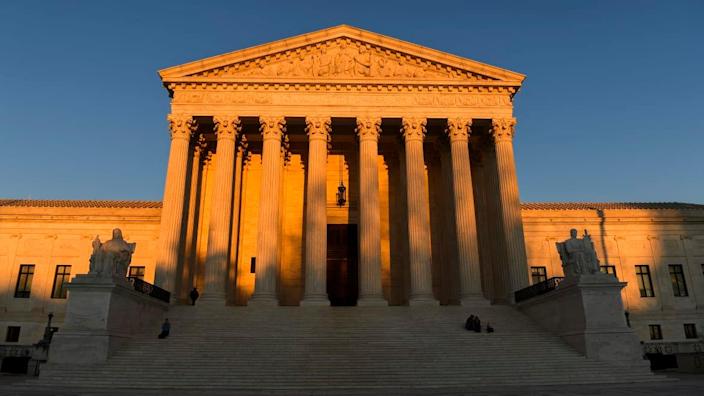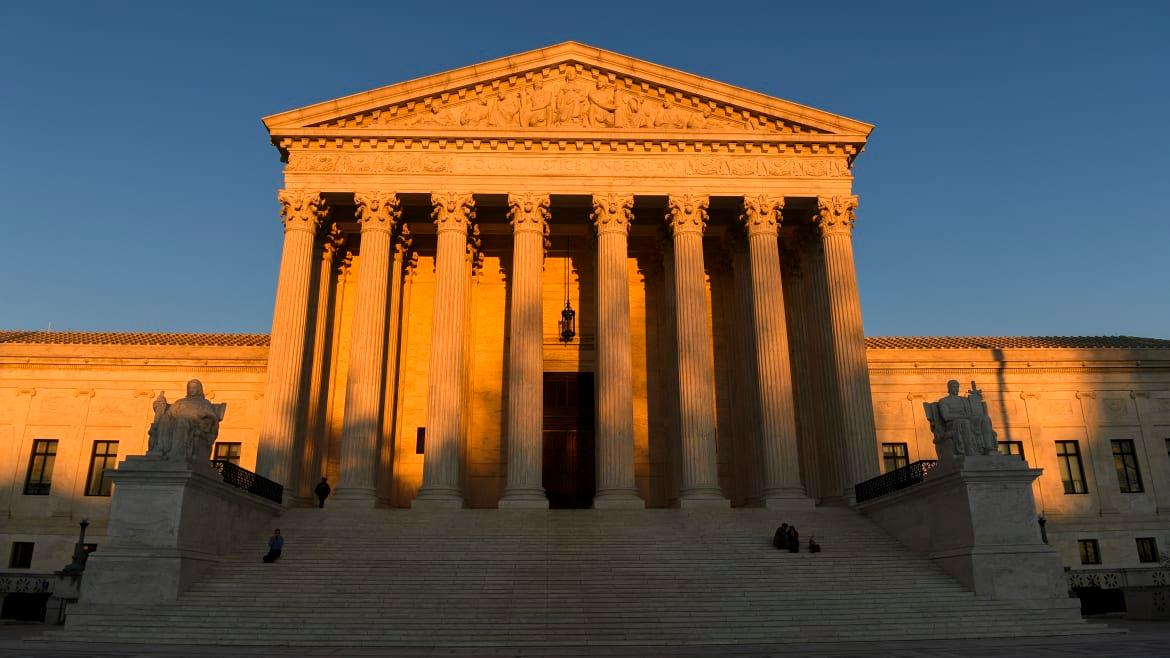
Last December, the Supreme Court met to hear pleas in Shinn v. Ramireza case that could mean life or death for Barry Jones, who is on death row in Arizona for the rape and murder of his girlfriend’s 4-year-old daughter, Rachel.
In 2018, a federal court overturned Jones’ conviction, finding that he had not received effective counsel, a violation of his Sixth Amendment rights. Had that happened, a federal judge ruled, “there is a reasonable chance that his jury would not have convicted him of any of the crimes he was charged with and previously convicted of.”
After losing in the U.S. 9th Circuit Court of Appeals, the Arizona Attorney General appealed the decision to the Supreme Court. During those pleadings, prosecutors repeatedly argued that “innocence is not enough” grounds for quashing Jones’ conviction.
On Monday morning, the Supreme Court voted 6-3: Barry Jones’s innocence is not enough to keep him off death row. The state of Arizona can still kill Jones even if there is a preponderance of evidence that he did not commit a crime.
The Supreme Court will never kill the death penalty, even with botched executions
The crime for which Jones was convicted is horrific. The little girl, Rachel, died of peritonitis, the result of a rupture in her small intestine that the state of Arizona said was the result of repeated physical and sexual abuse.
But Jones’ lawyers have never questioned the physical evidence that led to his conviction. As Liliana Segura, an investigative reporter for The Intercept, noted in a lengthy piece last year:
“Had Jones’ attorneys done their job, they could have done enough to defend their client. They could have pointed out that the chief detective, who examined Rachel at the hospital, didn’t bother to investigate how or when the child sustained her fatal injury — or consider a suspect other than Jones. They could have called a medical professional to show that there was no real evidence that the child had been raped. Most crucially, Jones’ lawyers could have called a pathologist to challenge the state’s crime theory, which relied on a tight time frame in which Jones allegedly assaulted Rachel the day before her death. Medical experts now say Rachel’s abdominal wound could not have been fatal so quickly.”
At the time of his trial, Jones was appointed by the state as an attorney – a basic constitutional right guaranteed by the Sixth Amendment to all criminal defendants. If a defendant claims after his conviction that he has not received adequate counsel, he is appointed as the new legal representative. If the new attorney also provides ineffective counsel, a federal habeas appeal allows them to argue that their attorney was ineffective after the conviction.
In fact, Jones claimed he was given ineffective counsel not once, but twice. And the fault is not with him, but rather with his attorneys appointed by the state of Arizona. By allowing him to adduce proofs of his innocence, a federal court would effectively rectify the mistakes made not only by his lawyers, but also by the state responsible for appointing them.
In a case from 2012 Martinez v. Ryanthe Supreme Court ruled that a convicted defendant is “not guilty of failing to file a lawsuit ineffectiveness claim in state court” — opening the door to appeals like Jones’s.
On Monday, the Court overturned the precedent Martinez had set.
In its decision, written by Judge Clarence Thomas, the Court ruled that a federal court may “not question evidence or otherwise consider evidence beyond the state court based on the state attorney’s ineffective assistance after sentencing.” In short, a convicted defendant, such as Jones, can be held accountable and imprisoned if his state-appointed attorney has provided ineffective counsel for his appeal.
It creates a really bizarre, even Orwellian situation.
How can a defendant allege ineffective counsel if he cannot point to specific examples of that ineffective counsel? And how can they do that but by introducing new evidence that was not presented at trial that would likely have exonerated them? In effect, Thomas says that a petitioner must rely on the record of a trial in which they were ineffectively defended – and their actual innocence is secondary.
Thomas justifies the Court’s decision by stating that a federal review would impose “significant costs” on the state’s criminal justice systems, potentially including lifting “the sovereign power of the state to regulate “social norms through criminal law.” to enforce.”
You could argue that housing a man who has not committed an actual crime on Arizona’s death row “incurs a significant cost.” You might even argue that executing an innocent man comes at a much higher cost to society — not just for the legitimacy of the criminal justice system, but even more so for the man whose life the state ended.
As Judge Sonia Sotomayor noted in her dissent, “The Court’s decision will leave many people convicted of violations of the Sixth Amendment to incarceration or even execution without any meaningful opportunity to defend their right to a lawyer.” She called the ruling “perverse” and “illogical,” which doesn’t really do justice to its utter obscenity.
SCOTUS’s decision will allow an innocent man to be potentially killed by the state for largely procedural reasons. That Arizona even appealed the federal court decision in this case is really depraved. The state could have filed for a new trial or released Jones. Instead, prosecutors appealed to the Supreme Court, where if they won, they risked putting a man to death if there was substantial doubt about his guilt.
What social purpose is promoted by such an outcome? Why would a prosecutor risk killing an innocent man? How does that benefit the cause of justice?
Far worse, the Supreme Court is willing to uphold Arizona’s tainted judgment.
As Jonathan Zasloff, a law professor at UCLA, told me, part of the problem is that “the conservative majority of the Court does not fully accept the idea that there is a right to effective counsel.”
“You could argue that there is a cost to the lack of finality of new claims on habeas. Any inmate can simply file a new motion to say, ‘I have been denied effective aid,’” Zasloff said. “So, as a society, do we want to pay that price to make sure innocent people aren’t killed? Not for these guys. So much for the right to life.”
The same Court that looks ready to fall Roe v. Wade to protect innocents before they are born seems to lose interest when it comes to innocents later in life.
Still, for meticulous court guards, the decision is not surprising. Thirty years ago, the Court issued a ruling that a death row inmate who belatedly presents evidence of innocence is not necessarily entitled to a federal court to hear their claims. Judge Antonin Scalia went further, noting, “there is no basis, tradition, or even contemporary practice to find in the Constitution the right to require judicial consideration of newly discovered evidence of innocence brought forward after a conviction.” In an angry dissent, Judge Harry Blackmun described the majority’s reasoning as “dangerously close to simple murder.”
With their verdict on Monday, the conservative members of the Court have confirmed Scalia’s depraved thinking. Simple logic would suggest that proving one’s innocence is enough to ensure that a wrongful conviction is quashed and an innocent man or woman is released. Moments like these are the emotional highlights of countless Hollywood movies. It’s the way most Americans would imagine our legal system should work.
But with the current Supreme Court and its increasing refusal to adhere to long-standing legal precedents, basic societal norms and simple moral constructs, the reality is quite different. For the highest court in the country, the state of Arizona murdering an innocent man is not a perversion of the criminal justice system, but rather a symbol of its proper functioning.
Read more at The Daily Beast.
Get the Daily Beast’s biggest scoops and scandals straight to your inbox. Sign up now.
Stay informed and get unlimited access to Daily Beast’s unparalleled reporting. Subscribe now.

